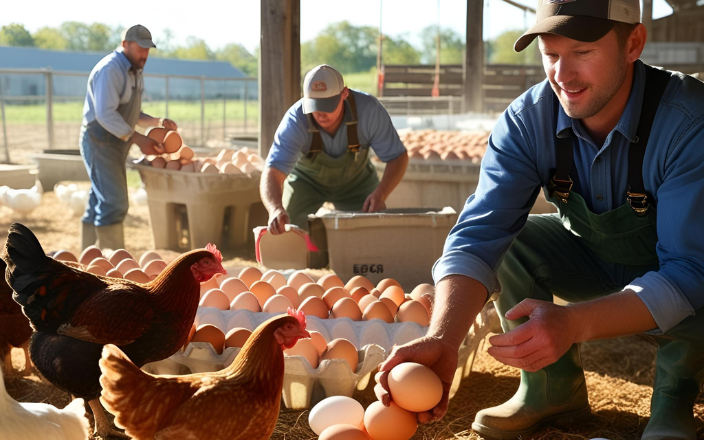The HPAI has caused devastating losses in egg production, prompting egg producers to urgently request the approval of avian influenza vaccines to protect their flocks and stabilize the industry.
Impact of Avian Influenza on egg production
Since the outbreak began, over 100 million birds have been affected, including 73 million egg-laying hens. The virus spreads rapidly through direct contact with infected birds, contaminated feed, and equipment, leading to high mortality rates among poultry. The states most impacted by the outbreak include Utah, Oregon, California, and Washington, where egg production has significantly decreased. This reduction in egg supply has resulted in shortages and increased prices, affecting both consumers and producers.
Producers’ call for vaccination
Egg producers are advocating for the use of avian influenza vaccines as a critical measure to combat the spread of the virus. While vaccines do not provide complete protection, they can reduce the severity of the disease and decrease viral shedding among vaccinated birds. This partial protection is seen as a vital step in controlling the outbreak and preventing further losses. The United States Department of Agriculture (USDA) is currently evaluating the request from the poultry industry to approve the limited use of avian influenza vaccines in the hardest-hit states.
USDA’s response and strategy
In response to the crisis, the USDA has implemented a five-pronged strategy to address avian influenza and support egg producers. This strategy includes strengthening biosecurity measures, expediting relief for farmers, reducing regulatory burdens, and investing in research and vaccine development. The USDA has committed up to $100 million to support projects related to vaccines, therapeutics, and other strategies to combat avian influenza. Additionally, the USDA is working with industry stakeholders to explore innovative approaches to disease management and minimize the extent of depopulations while maintaining food safety standards.
Challenges and future outlook
Despite the potential benefits of vaccination, there are concerns about trade ramifications, as many countries restrict imports of poultry products from regions that use avian influenza vaccines. However, the urgency of the situation has led producers to prioritize the health and stability of their flocks over potential trade issues. The USDA continues to hold discussions with state departments of agriculture, veterinarians, and industry representatives to develop a comprehensive vaccine strategy.
As the egg industry navigates this challenging period, the approval and implementation of avian influenza vaccines could play a crucial role in mitigating losses and ensuring the long-term sustainability of egg production in the United States.
Sources: Available upon request

